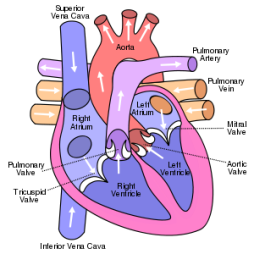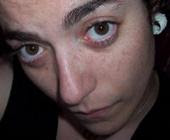Although my heart is still very weak, I am feeling better enough to return to work and a normal routine. My dog Brutus (below) has been my constant and faithful companion, but I yearn for human interaction and to return to the world of art.
I have been able to attend several art events in
My new outfit for the Fowler Memorial Dedication.
I am slowly building up my stamina - right now I can go out for two-three hours before starting to "poop out". I have been able to go to an opening at the
Tillie Fowler Memorial, Showing the Way
During the last couple weeks, I have felt more tired and slower. As the dose of heart and blood pressure medications increase, I feel weak and sometimes nauseous. Getting up from sitting is often followed by dizziness, which Dr Constantin says is normal. It doesn’t feel normal when I almost passed out shopping for shoes the other day. As I become used to the level of medications, the symptoms will subside.
Dizziness is a term used to describe everything from
feeling faint or lightheaded to feeling weak or unsteady.
Dizziness that creates the sense that you or your
surroundings are spinning or moving is called vertigo.
Although it may be disabling and incapacitating,
dizziness rarely signals a serious, life-threatening condition.
Treatment of dizziness depends on the cause and your
symptoms, but is usually effective.
Characteristics of dizziness may include:
* A sense that you or your surroundings
are spinning or moving (vertigo)
* A loss of balance
* Nausea
* Unsteadiness
* Wooziness
* Lightheadedness
* Faintness
* Weakness
* Fatigue
* Difficulty concentrating
* Blurred vision during quick head movements
Under normal circumstances, your sense of balance
is controlled by a number of signals that your
brain receives from several locations:
* Eyes. No matter what your position,
visual signals help you determine
where your body is in space and how it's moving.
·
Sensory nerves. These are in your skin, muscles and joints.
Sensory nerves send messages to your brain
about body movements and positions.
·
Inner ear. The organ of balance in your inner ear
is the vestibular labyrinth. It includes loop-shaped
structures (semicircular canals) that contain fluid
and fine, hair-like sensors that monitor
the rotation of your head. Near the semicircular
canals are the utricle and saccule, which contain
tiny particles called otoconia (o-toe-KOE-nee-uh).
These particles are attached to sensors that help
detect gravity and back-and-forth motion.
Feeling of faintness
"Presyncope" is the medical term for feeling faint and
lightheaded without losing consciousness. Sometimes nausea,
pale skin and a sense of dizziness accompany
a feeling of faintness. Causes of presyncope include:
1. Drop in blood pressure (orthostatic hypotension).
A dramatic drop in your systolic blood pressure — the higher
number in your blood pressure reading — may result in
lightheadedness or a feeling of faintness. It can occur after
sitting up or standing too quickly.
2. Inadequate output of blood from the heart.**
Conditions such as partially blocked arteries (atherosclerosis),
disease of the heart muscle (cardiomyopathy), abnormal heart
rhythm (arrhythmia) or a decrease in blood volume may
cause inadequate blood flow from your heart.
**That’s me.
As I prepare to return to work, I am planning how I will do things differently, more efficiently, less stressful. I am normally a “let-me-do-it-all-myself” worker. This illness has reminded me that I can’t do everything myself. I hope to start slowly and be able to build up my stamina and strength. I am certain my supportive colleagues will help me along the way.
One step in front of the other…

Here are a few additional images I have taken over the past month.
Kingsley PlantationMy parents at the beach

Flamingos at Jacksonville Zoo

Loop Train at Jacksonville Zoo














.svg.png)
